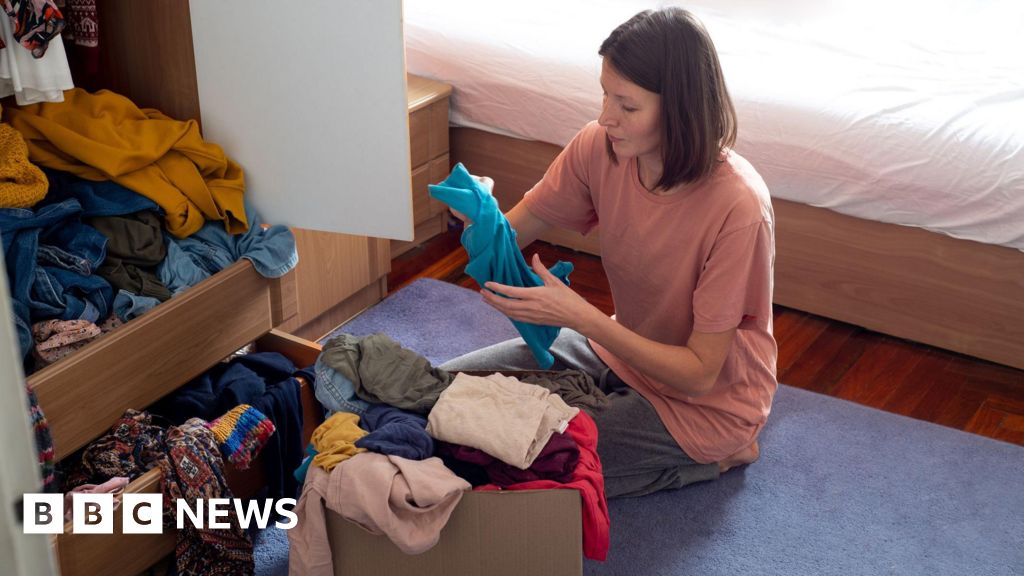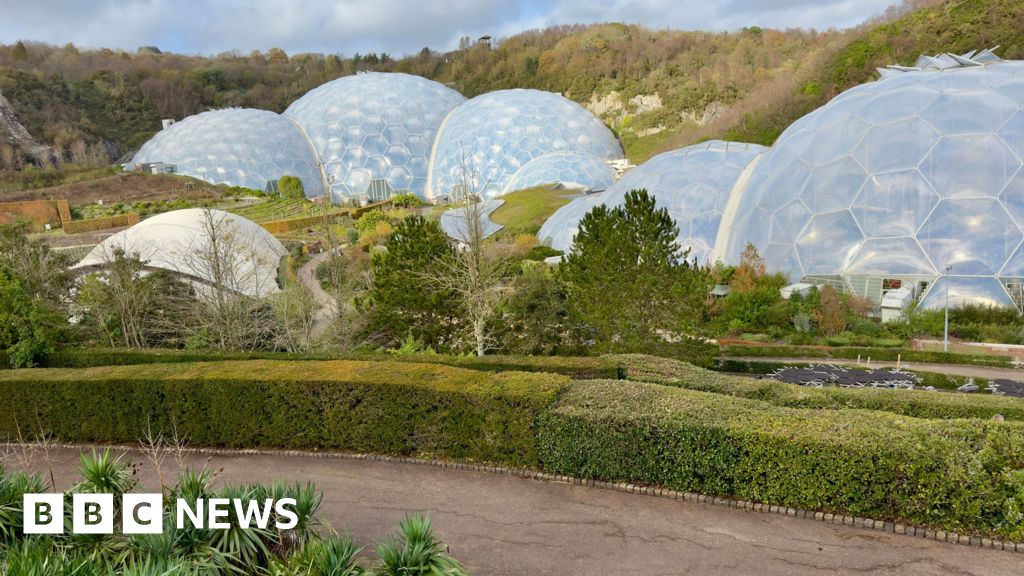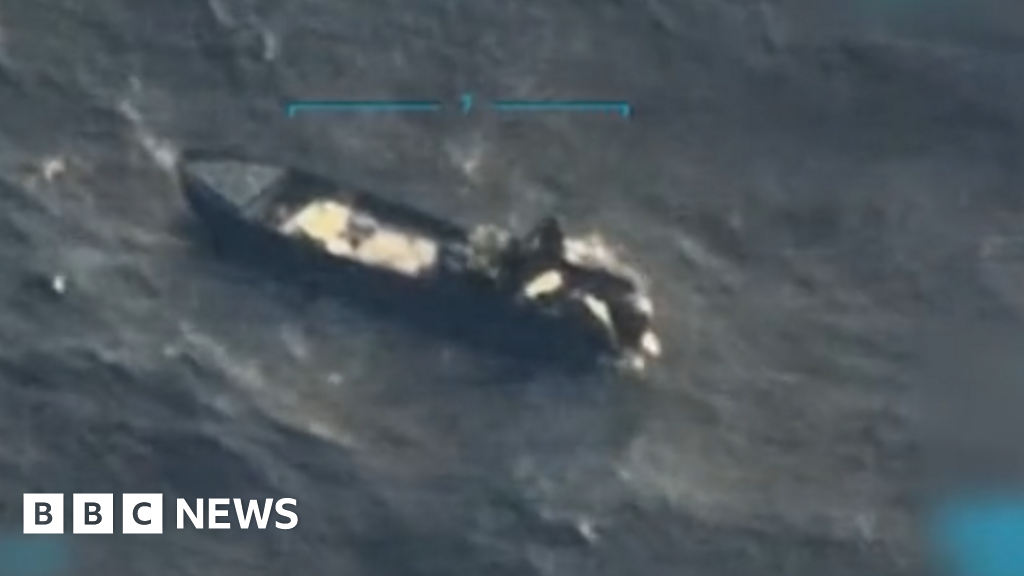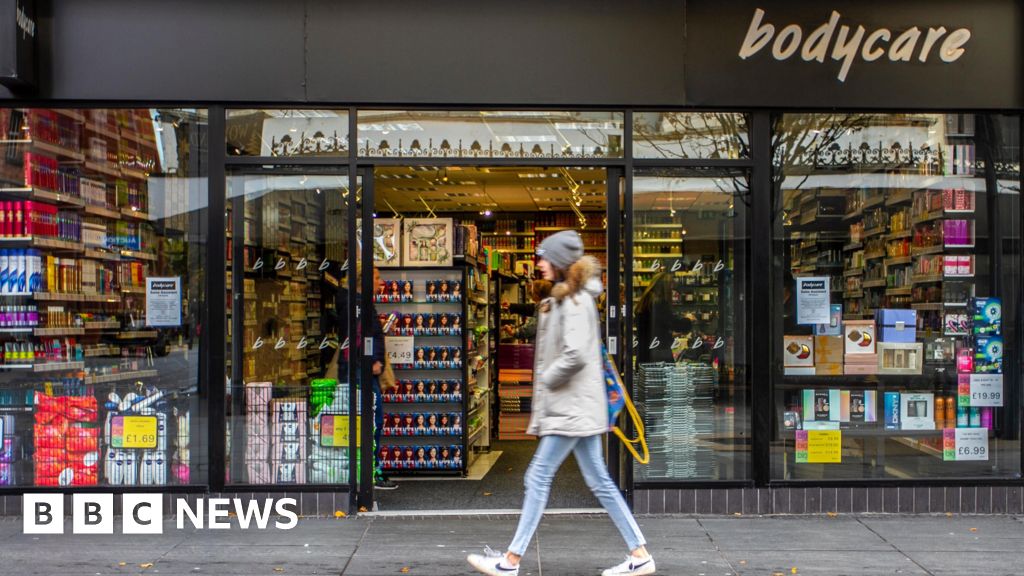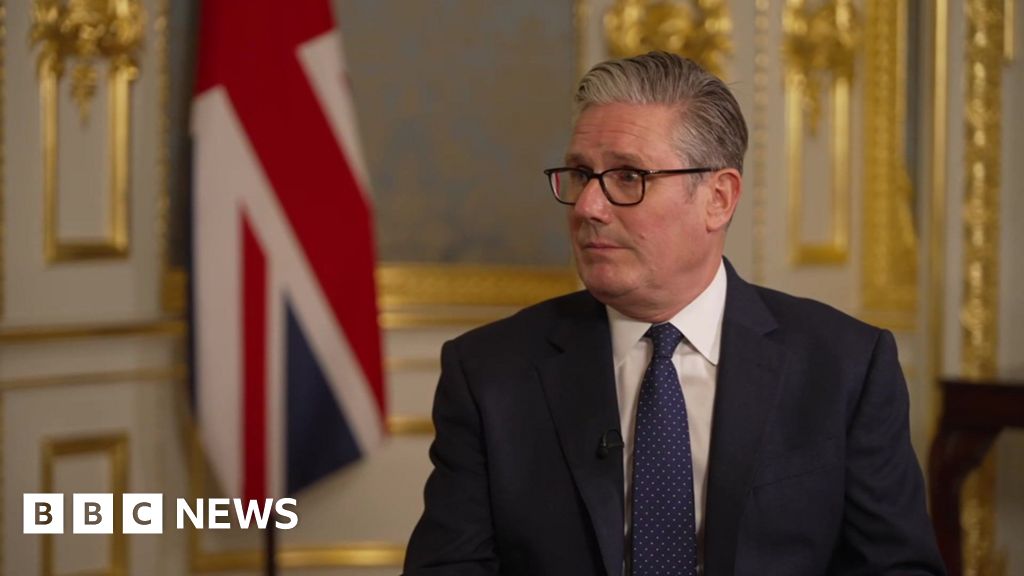Kevin Keane
BBC Scotland's environment correspondent

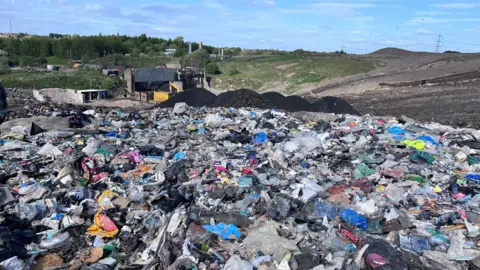 BBC
BBC
Landfill sites can be used for biodegradable municipal waste in Scotland until 31st December
Up to 100 truckloads of Scotland's waste each day will be moved to England once a landfill ban comes in at the end of the year, the BBC's Disclosure has been told.
The Scottish government is banning "black bag" waste from being buried in landfill from 31 December but acknowledges that there are not currently enough incinerators to meet the extra demand.
The ban, which covers biodegradable municipal waste (BMW), will apply to pretty much all domestic and commercial waste.
Scottish ministers said any export of waste should only be viewed as a "short-term solution".
The ban was originally meant to be in place by 2021 but was delayed because of the Covid pandemic and concerns that businesses were not ready.
It will see a string of materials banned from landfill, including non-recyclable black bag municipal waste, wood, textiles, paper and food.
Such biodegradable waste breaks down to produce methane, a greenhouse gas that is around 28 times more potent than carbon dioxide.
Some inert material, such as ash from incinerators and building rubble, will still be allowed at landfill sites.
The Scottish government wants to stop traditional black bag waste being buried in the ground by increasing recycling rates and using more energy-from-waste incinerators.
However, four years on from the date of the original plan, environmental consultants have concluded that hundreds of thousands of tonnes of rubbish still have no home.

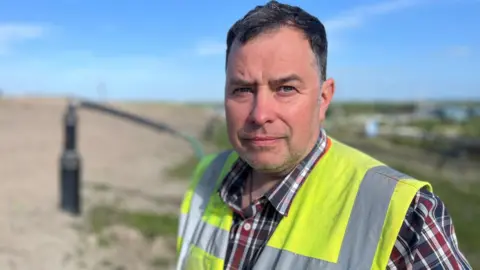
David Balmer says up to a hundred lorries a day will cross the border with waste
More waste is already being sent to incinerators - or energy-from-waste sites - but not enough of them will be ready by the 31 December deadline.
It is leaving a "capacity gap" which is estimated by Zero Waste Scotland to be 600,000 tonnes in the first year of the ban.
Some councils and commercial waste companies have been approaching rubbish handling operators in England to negotiate "bridging contracts".
Because most incinerators run with very little spare capacity, it would mean sending Scotland's excess waste to be landfilled in England.
The UK government also wants to eliminate biodegradable waste from landfill and it announced a consultation earlier this year but there is currently no policy in place south of the border.
David Balmer, a waste expert from ERS Remediation, told the Disclosure programme: "You're looking at the equivalent of between 80 and 100 trucks minimum running seven days a week to take this material to a facility in England or abroad."
And there are concerns that logistically the transportation might not be fully achievable.
Alasdair Meldrum, director of waste management consultants Albion Environmental, said: "We've probably not got the trucks and vehicles to actually move it."
He added: "You've got the environmental impact of all that transport, it's nonsensical, but the people who have invested in incinerators are saying 'we've invested all this money because of the ban'.
"So, we're stuck in a really hard place."

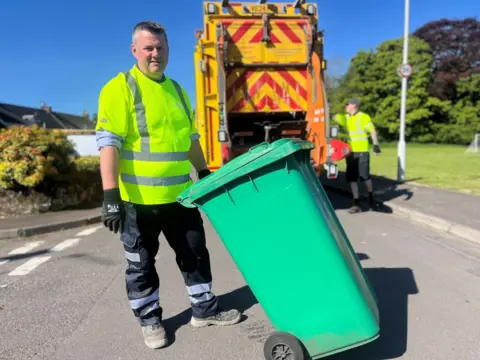
An army of refuse collectors take our recycling and waste from kerbsides every day
While the reason for the ban is to reduce the amount of greenhouse gases coming from landfill sites, the short-term impact will be a rise in emissions from the fleet of heavy vehicles taking the waste to sites in Cumbria, Northumberland or potentially as far away as Manchester.
The long-term strategy had been to reduce the amount of "black bag" waste households generate, meaning less would have to be incinerated.
But domestic recycling rates have barely budged in a decade.
In 2013, Scottish homes recycled 41.6% of their waste but by 2023 that figure had increased by less than 2 percentage points to 43.5%.
The figures for England and Northern Ireland are slightly better but for Wales it is a massive 64.7%.

 NESS Energy Project
NESS Energy Project
The 'energy from waste' incinerator in Aberdeen processes 150,000 tonnes of waste each year
In Scotland, there are currently eight operational incinerators across the country.
Until 2022 there was a rush to build more but the Scottish government put the brakes on development fearing there would end up being an overcapacity.
The only additional ones which will now be built have already entered the planning process.
While incinerators are still responsible for a significant amount of greenhouse gases, experts say they are about a third less environmentally damaging than the methane caused by materials rotting in landfill sites.
As an additional benefit, they also produce some electricity and some recover heat to warm neighbouring homes and buildings.
Colin Church, who chaired an independent review into incineration in Scotland, believes the shift to incinerators has been the right choice.
He told Disclosure: "It's probably the best thing that we can do with waste, with our current levels of technology, and so capturing some energy from that is a good idea."
Circular economy
Environmental groups are concerned that contracts which guarantee waste being delivered by councils to incinerators will put off local authorities from investing in more recycling.
Kim Pratt, from Friends of the Earth Scotland, described the current waste management system as broken.
She said: "Incineration in Scotland is out of control.
"There have been incinerators built in Aberdeen, in Falkirk, there's one this year that's going to be built in North Ayrshire as well.
"All of these incinerators have communities locally who are opposing them."
Waste campaigner Laura Young said: "One of the worries is these are expensive facilities – expensive to run, big contracts involved in this – and it means that we need to utilise them.
"We built them so we need to use them."
The Scottish government points to a range of initiatives it has launched in recent years to tackle household waste and create a more "circular" economy, where material are reused over and over.
These include bans on single use vapes, forthcoming charges on disposable cups and a planned deposit-return scheme for cans and plastic bottles.
It said the "vast majority" of councils had alternative measures in place ahead of the landfill ban coming into force but they will "work closely with local authorities and sector bodies to monitor and review any related issues which may arise as the date of the ban approaches".
The Scottish government added: "Any export of waste should only ever be viewed as a short-term solution."

 3 months ago
58
3 months ago
58
